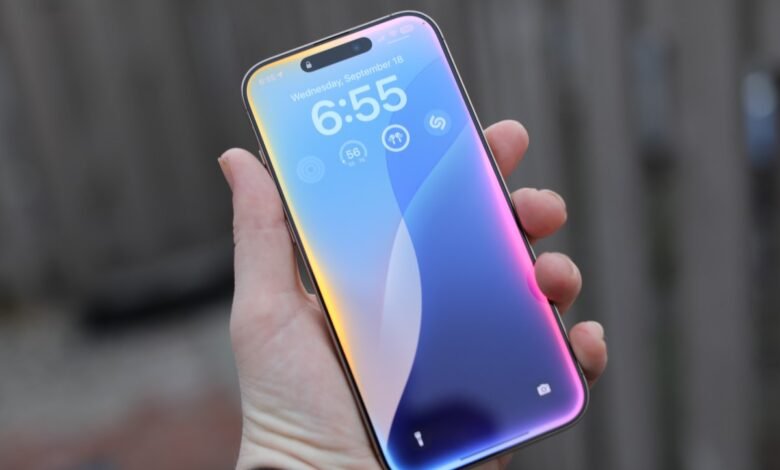Apple’s AI Opportunity Is Still Wide Open

▼ Summary
– OpenAI now allows apps to run inside ChatGPT, enabling users to perform tasks like booking travel and editing designs without switching apps.
– Apple’s AI strategy aims to modernize app usage by overhauling Siri and shifting from tapping icons to voice commands for app interactions.
– ChatGPT’s app platform requires specific prompts and setup steps, which can be cumbersome and lacks the branding and flexibility of native apps.
– Apple’s ecosystem advantages include hardware control, a large user base, and developer tools that could enhance Siri’s integration with apps seamlessly.
– OpenAI is exploring a hardware device with Jony Ive to embed AI in daily life, but faces challenges in creating a better paradigm than smartphones and public privacy concerns.
The landscape of artificial intelligence is rapidly evolving, with recent developments from OpenAI introducing a new way for users to interact with applications directly within the ChatGPT interface. This innovation allows people to book travel, create music playlists, and edit designs without switching between different programs. Some industry observers have suggested this could represent the future of app distribution, potentially challenging established platforms like Apple’s App Store. However, despite this emerging competition, Apple maintains significant advantages through its control over hardware, operating systems, and its massive installed base of approximately 1.5 billion iPhone users worldwide.
While OpenAI’s platform boasts an impressive 800 million weekly active users, Apple’s delayed but ambitious plans for an AI-powered Siri overhaul could ultimately work in the company’s favor. Apple’s vision involves transforming how users interact with their devices by moving beyond the traditional app icon interface toward more natural voice and text commands. This shift recognizes that organizing tappable icons on a home screen represents a dated approach to computing, especially as consumers increasingly turn to AI assistants for recommendations and information rather than conducting manual searches or launching dedicated applications.
The fundamental difference between the two approaches lies in their implementation. ChatGPT’s app system requires users to engage through a chatbot-style interface, naming specific applications at the beginning of prompts and navigating potential technical hurdles. Early testing has revealed that inaccurate queries can leave users stuck on loading screens without results. Meanwhile, Apple’s proposed system would integrate seamlessly with the existing iPhone experience, allowing users to control their apps through conversation with Siri without additional installation or authentication steps.
Apple’s ecosystem benefits from established user habits and muscle memory, with consumers already familiar with their preferred applications and how to access them. The company’s developer tools and frameworks, including SiriKit and the App Intents framework, provide infrastructure that could enable more natural app interactions. When the updated Siri launches, it will reportedly work immediately with numerous popular applications across categories like messaging, payments, restaurant reservations, and workouts, requiring no additional developer effort for basic functionality.
OpenAI’s platform faces several challenges in gaining widespread adoption. The system currently works with only a limited selection of apps and requires developers to implement the Model Context Protocol, a newer technology for connecting AI assistants to external systems. Users must also navigate installation and authentication processes, including two-factor verification, before they can access app functionality through ChatGPT. Additionally, the ChatGPT interface removes the branding and design elements that users associate with their favorite applications, potentially creating a less engaging experience.
Privacy considerations represent another area where Apple may hold an advantage. The company has established privacy controls that allow users to limit data collection, while ChatGPT’s app system currently lacks equivalent “Do Not Track” options. Apple’s integration of AI capabilities directly into its operating system and hardware creates a more seamless experience that doesn’t require users to adopt an additional intermediary application.
The hardware dimension adds another layer to this competition. Reports indicate that OpenAI is exploring developing its own device with former Apple design chief Jony Ive, recognizing that becoming part of consumers’ daily habits may require dedicated hardware. However, creating a successful alternative to the smartphone has proven challenging, and public sentiment has shown some resistance to always-on AI devices due to privacy concerns and social acceptability.
Apple’s potential to integrate AI capabilities directly into the iPhone experience could make intermediary applications unnecessary for many users. The company’s reported internal testing suggests the smarter version of Siri will work seamlessly with numerous popular apps right out of the box. If Apple can deliver on its promises while addressing Siri’s current reputation for underperformance, the company may successfully modernize app interactions without ceding control of its platform to external AI services.
The coming year will be crucial for both companies as they compete to define how consumers interact with applications in the AI era. While OpenAI has demonstrated innovative approaches to app integration, Apple’s entrenched position in the mobile ecosystem and its comprehensive control over both hardware and software give the company multiple advantages in this emerging competition. The success of either approach will ultimately depend on which platform delivers the most intuitive, reliable, and valuable experience for everyday users.
(Source: TechCrunch)





